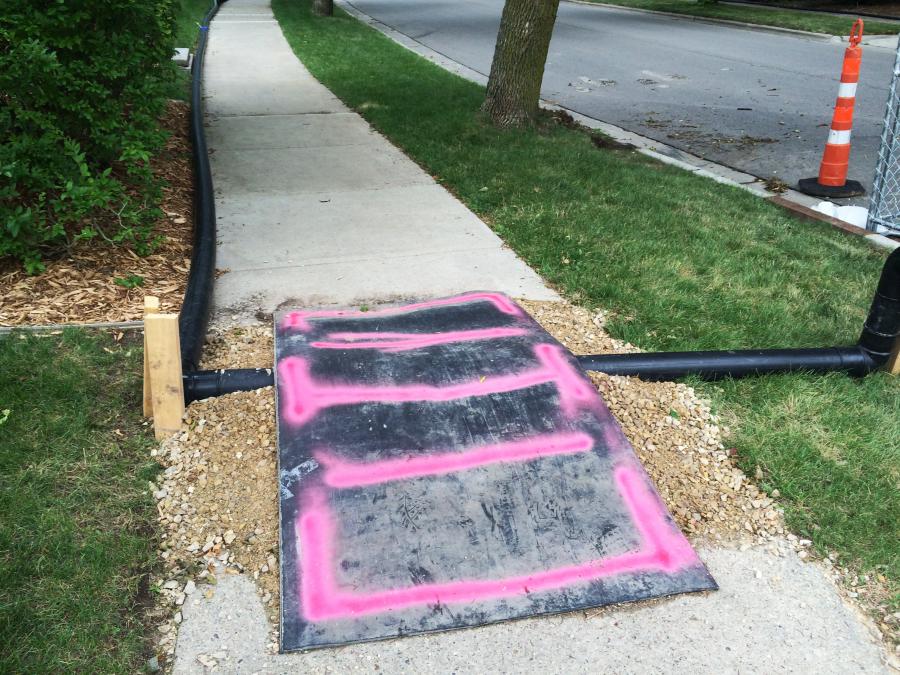Water Main Rehabilitation - Cannonball Path
About the Project
Madison was the first city in Wisconsin to rehabilitate aging water mains using Cured-In-Place Pipe (CIPP) relining methods. The process allows Madison Water Utility to create a new pipe inside the old, deteriorating main without digging up the street for a full replacement, saving both time and money. The water main rehabilitation project will take place at Lake Mendota Drive, from Spring Harbor Drive to 4900 Lake Mendota Drive (see map above).
You can see what the process looks like in this video:
Latest News
- June 2023 - City of Madison Common Council approved Fer-Pal as the contractor to complete the CIPP water main rehabilitation project.
- July 2023 - Fer-Pal selected as contractor to complete water main rehabilitation project
Frequently Asked Questions (FAQs)
Will Cannonball Bike Path be impacted?
For the length of the project, the cannonball bike path will remain open to the public with the understanding that all traffic using the path will be on foot. Bikers will be required to walk their bike the length of the project limits for the safety of both the contractor and the public. There will be 8 “pits” along the path that consist of large holes dug into the ground and fenced off for safety. Some of these pits will block most of the path, so rubber mats will be laid around the pits where two-way traffic is not possible.
What is temporary water service?While the main on your street is being rehabilitated, you will safely and effectively be provided water through an above-ground, temporary water main system. The system is disinfected, sampled and tested using the same procedures as all City of Madison water pipe installations. Ramps will be constructed over the bypass main at driveways and road crossings to maintain traffic flow.While being served on the bypass system, your existing water meter will removed (you will not be charged for water during this period) and then reinstalled once the rehabilitation is complete. The project contractor will schedule a meter installations appointment with you. More detailed information regarding the temporary water system and associated water meter work will be directly distributed at the start of construction activity.
Will I still have water service during construction?
Before construction starts, you will be provided constant water service through a temporary, above-ground water main. The temporary main will be constructed entirely from NSF 61 drinking water safe components and will be disinfected and tested prior to providing service. The temporary main is connected to your home at an exterior hose bib. Existing water meters may need to be removed while connected to the bypass system.Any hydrants being used for above-ground bypass feeds are thoroughly cleaned and disinfected by MWU staff, prior to making any bypass connections.
All bypass pipes are certified by national standards as safe for use in potable water systems; Madison Water Utility requires “NSF/ANSI 61” certification for both the bypass piping and the lining material that will be used on the existing buried pipes. This certification is recognized as a way to ensure that any related products do not contribute contaminants to drinking water that could cause adverse health effects.Prior to home connections, the bypass system is fully established and chlorinated for two days, before being flushed and tested at the Wisconsin State Laboratory of Hygiene to ensure that there are no bacteriological concerns.
What can I expect during construction?
Construction is scheduled to begin in August and end by November. The project contractor may work between the hours of 7:00 AM and 7:00 PM, Monday through Saturday and 10:00 AM and 7:00 PM Sunday. Roads will be open to traffic, however there will be several small street excavations, and the temporary main will run under ramps at traffic crossings and driveways. Metro Transit Bus services will not be impacted.

Photo: Temporary bypass main crossing the sidewalk
What is involved in CIPP process?
The CIPP pipe itself consists of two polyester layers and a durable water-tight surface layer. The polyester tubes are filled with a liquid epoxy resin. The resin-saturated tube is installed inside the existing water main between two small excavations at each end of the pipe segment. The tube is pressurized to adhere tightly against the existing pipe-walls and heat is applied to harden the resin, forming a new continuous pipe.After the pipe is installed, service connections are re-cut from within the pipeline using a small robotic drilling system. The CIPP project will be subjected to the same water pressure and water quality testing requirements as any other new pipe system.
Are CIPP systems safe for drinking water?
All CIPP drinking water systems in Madison are certified ro meet the National Sanitation Foundation (NSF) Standard 61 for drinking water health and safety. This certification is required by the Wisconsin Department of Natural Resources to ensure water meets all standards set by the Environmental Protection Agency (EPA) Safe Drinking Water Act.
Is CIPP as good as traditional pipe replacement materials?
The structural CIPP pipe is designed to meet the WI-DNR’s physical requirements of new pipes. The CIPP design calculations are prepared by a Professional Engineer and submitted to WI-DNR for review and approval prior to beginning construction. The CIPP liner pipe is designed to withstand at least a constant working pressure of 100-psi for 50-years with a factor of safety of 2.5. The calculations are to assume the CIPP liner as a stand-alone pipe, not relying on any remaining integrity of the deteriorated host pipe.
Why not install a new water main instead of rehabilitating the existing one?
Traditionally, digging trenches and installing new water pipes is the most cost-effective solution for neighborhoods with aging mains. Most water main replacements are coordinated with other utility work or street resurfacing projects so the costs can be shared. In circumstances like this one, the existing water mains are in need of replacement, but other utilities and the street pavement are not. CIPP is an important alternative to help solve main break issues in this case.
